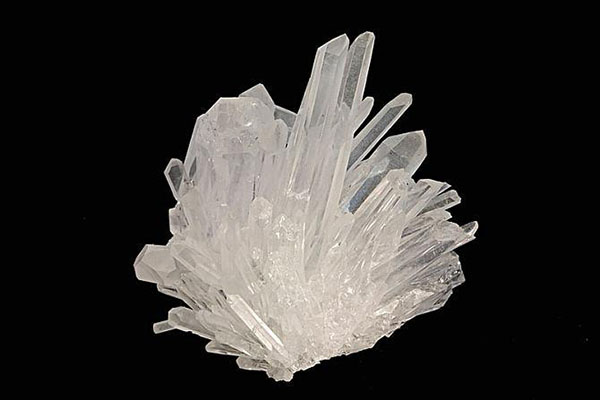When it comes to selecting a countertop material for your kitchen or bathroom, there are many options available. Two popular choices are Silestone and quartz. While they may sound similar, they are not exactly the same. In this post, we’ll explore the differences between Silestone and quartz, their pros and cons, and their applications.
What is Quartz?
Quartz is a mineral that occurs naturally in the earth’s crust. It is a hard and durable material that is highly resistant to scratches, stains, and heat. Quartz is made up of silicon and oxygen, and its chemical formula is SiO2. It is a common material used in the manufacturing of various products, including countertops.
Quartz countertops are made from engineered quartz, which is a combination of natural quartz crystals and resins. The process involves crushing and mixing the quartz with resins and pigments to create a slurry that is poured into molds. The slabs are then heated and compressed to create a hard and durable surface.
What is Silestone?
Silestone is a brand of engineered quartz countertops. It is manufactured by the Spanish company Cosentino, which has been producing high-quality surfaces for over 80 years. Silestone is made using a similar process to other engineered quartz brands, but it has a unique combination of materials that make it stand out.
Silestone is made from 94% natural quartz crystals, mixed with resins and pigments. The result is a surface that is highly durable, non-porous, and resistant to scratches, stains, and heat. Silestone is available in a wide range of colors and designs, making it a popular choice for homeowners and designers.
Differences between Silestone and Quartz
While Silestone is a type of engineered quartz, there are some differences between the two materials.
Material Composition
Quartz countertops are made from a combination of natural quartz crystals, resins, and pigments. The percentage of quartz content can vary depending on the manufacturer, but it typically ranges from 90-95%.
Silestone, on the other hand, is made from 94% natural quartz crystals, mixed with resins and pigments. The difference in composition may seem small, but it can affect the performance and durability of the material.
Manufacturing Process
The manufacturing process for both quartz and Silestone is similar. Both materials are made by mixing natural quartz crystals with resins and pigments to create a slurry. The slurry is then poured into molds, compressed, and heated to create a hard and durable surface.
However, Silestone uses a unique combination of materials that sets it apart from other engineered quartz brands. The company uses a special process called N-Boost, which enhances the color and texture of the surface, making it more vibrant and reflective.
Appearance and Design Options
Both quartz and Silestone offer a wide range of colors and designs to choose from. Quartz countertops are available in various shades of white, gray, black, and brown, as well as other colors. Silestone offers a broader range of colors and designs, including solid colors, patterns, and textures.
Silestone also offers a unique feature called “Eternal Collection,” which mimics the look of natural stones such as marble and granite. This collection offers the beauty of natural stone without the maintenance and durability issues that come with it.
Cost
The cost of both quartz and Silestone can vary depending on the manufacturer, the color and design, and the location. However, in general, Silestone tends to be more expensive than quartz. This is due to the higher percentage of natural quartz crystals used in its production, as well as the unique manufacturing process and design options.
Pros and Cons of Silestone and Quartz
Both Silestone and quartz offer various advantages and disadvantages, which should be considered when making a decision about which material to choose.
Advantages of Silestone
- Highly durable and resistant to scratches, stains, and heat
- Non-porous surface that is easy to clean and maintain
- Wide range of colors and designs to choose from
- Eternal Collection that mimics the look of natural stones without the maintenance issues
- Unique manufacturing process that enhances the color and texture of the surface
Advantages of Quartz
- Highly durable and resistant to scratches, stains, and heat
- Non-porous surface that is easy to clean and maintain
- Wide range of colors and designs to choose from
- Generally less expensive than Silestone
Disadvantages of Silestone
- More expensive than quartz
- May not be suitable for outdoor use as it may fade over time due to exposure to UV light
Disadvantages of Quartz
- May not have the same level of vibrancy and reflection as Silestone due to the lower percentage of natural quartz crystals used in its production
Applications of Silestone and Quartz
Silestone and quartz are suitable for a wide range of residential and commercial applications. They can be used for kitchen countertops, bathroom vanities, tabletops, backsplashes, and more. Their durability and resistance to scratches, stains, and heat make them ideal for high-traffic areas and surfaces that are prone to spills and stains.
Silestone’s unique Eternal Collection is also suitable for applications where the beauty of natural stones is desired without the maintenance issues. This collection is ideal for luxury hotels, restaurants, and other high-end commercial projects.
Maintenance and Care
Both Silestone and quartz require minimal maintenance and care. They are non-porous surfaces, which means they do not absorb liquids and are easy to clean. Regular cleaning with mild soap and water is sufficient to keep the surfaces looking their best.
Silestone’s unique manufacturing process and design options may require slightly different care than other engineered quartz brands. It is recommended to avoid abrasive cleaners and harsh chemicals that can damage the surface’s color and texture.
Conclusion
While Silestone is a type of quartz, there are some differences between the two materials. Silestone’s unique combination of materials and manufacturing process make it stand out from other engineered quartz brands. Both materials offer various advantages and disadvantages, and it is essential to consider these when selecting a countertop material.
Ultimately, the choice between Silestone and quartz will depend on personal preferences, budget, and specific needs. Both materials offer high durability, resistance to scratches, stains, and heat, and a wide range of design options, making them excellent choices for any residential or commercial project.



